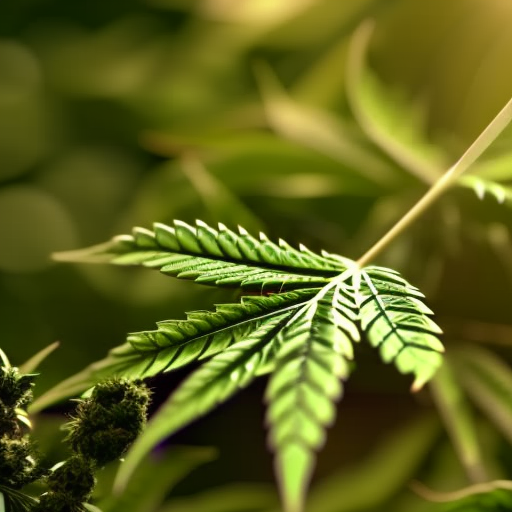
Insomnia: Exploring the Relationship Between Cannabis and Sleep
Introduction
Insomnia is a prevalent sleep disorder that affects millions of people worldwide. It is characterized by difficulty falling asleep, staying asleep, or experiencing non-restorative sleep. The causes of insomnia can vary, ranging from underlying medical conditions to psychological factors. In recent years, there has been growing interest in the potential use of cannabis to alleviate insomnia symptoms. This article aims to explore the current research on the relationship between cannabis and sleep, specifically focusing on the efficacy and mechanisms underlying its effects on insomnia.
Causes of Insomnia
Insomnia can stem from various factors, both intrinsic and extrinsic. Intrinsic factors include medical conditions such as chronic pain, cardiovascular disease, and psychiatric disorders like anxiety and depression (ASA Authors & Reviewers, n.d.). Extrinsic factors encompass environmental influences like noise, temperature, and disrupted sleep schedules (ASA Authors & Reviewers, n.d.).
Stages of Sleep
To understand how cannabis affects sleep, it is essential to comprehend the stages of sleep. Sleep is divided into distinct cycles that consist of non-rapid eye movement (NREM) and rapid eye movement (REM) phases (ASA Authors & Reviewers, n.d.). NREM sleep consists of four stages: N1, N2, N3 (also known as slow-wave sleep), and REM sleep. Each stage plays a crucial role in restoring physical and mental health.
Cannabis and Sleep: A Review of the Literature
Several studies have explored the relationship between cannabis use and sleep. Cannabinoids are compounds found in cannabis that interact with the endocannabinoid system (ECS), which regulates various physiological processes, including sleep (Kesner & Lovinger, 2020). Research suggests that cannabinoids may have both positive and negative effects on sleep.
One study conducted by Babson et al. (2017) reviewed existing literature on cannabis and sleep. They found that cannabis use may help initiate sleep but can lead to difficulty maintaining sleep throughout the night. The study also highlighted the need for further research to determine the optimal cannabinoid composition and dosage for improving sleep quality.
Another study by Belendiuk et al. (2015) explored the preferences of medicinal cannabis users with sleep disturbances. The results indicated that individuals with insomnia preferred cannabis strains with higher tetrahydrocannabinol (THC) concentrations, suggesting its potential sedative effects.
Cannabinol (CBN), a lesser-known cannabinoid, has also shown promise in promoting sleep. CBN is produced when THC degrades over time or undergoes oxidation (National Center for Biotechnology Information, 2021). A study by Vigil et al. (2018) examined the effectiveness of raw, natural cannabis flower for treating insomnia. They found that higher CBN levels correlated with improved sleep quality, highlighting its potential as a therapeutic agent.
Clinical Trials and Future Directions
Despite the growing interest in using cannabis as a sleep aid, there is still a lack of conclusive evidence from well-controlled clinical trials. Kuhathasan et al. (2019) conducted a critical review of clinical trials involving cannabinoids for sleep. They concluded that while some studies reported positive effects on sleep parameters, methodological limitations and inconsistent findings called for further investigation.
To address these gaps in knowledge, ongoing clinical trials are investigating the potential of cannabinoids, including CBD and THC, to treat chronic insomnia disorder (Suraev et al., 2020). These trials aim to elucidate the precise mechanisms underlying the effects of cannabinoids on sleep and provide evidence-based guidance on their use.
Conclusion
Insomnia is a complex sleep disorder influenced by various factors. Cannabis has garnered attention as a potential treatment option due to its interactions with the endocannabinoid system. While existing research suggests that cannabinoids may have both positive and negative effects on sleep, further investigation through well-controlled clinical trials is needed to establish their efficacy and optimal use. As the field continues to advance, a better understanding of the relationship between cannabis and sleep can potentially enhance treatment options for individuals with insomnia.

